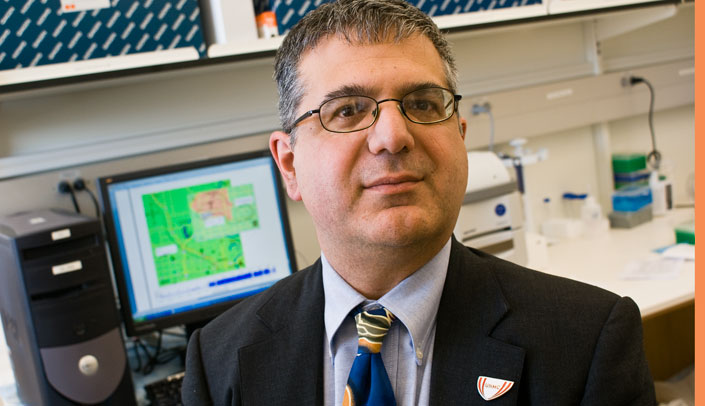The University of California San Francisco and UNMC have been awarded a $10 million grant from the Centers for Medicare & Medicaid Innovation to create a new web-based model of dementia care.
It will provide around the clock consultations for patients and their families, online education and, for a subset of patients, remote monitoring with smart phones and home sensors.
UNMC’s Steven Bonasera, M.D., Ph.D., an associate professor of geriatrics who did his fellowship at UCSF, will collaborate with UCSF researchers on the project.
The Dementia Care Ecosystem will not replace clinicians, but rather bring educational resources developed over the past decade by UCSF’s Memory and Aging Center (MAC) to patients and their families, while enabling clinicians to monitor their patients from afar.
“Our hope is this is going to radically improve the way dementia patients are cared for,” said Katherine Possin, Ph.D., assistant professor of neuropsychology at UCSF. “We hope we’ll show this works, and that it can be adopted nationwide.”
Each patient will have a navigator, who will check in by telephone or with a personal visit, as well as monitor communication with patients and their families through an Internet dashboard, created with the help of Salesforce. Navigators will be people without a formal medical degree and will be supervised closely by nurses, social workers and pharmacists with expertise in dementia care.
Dr. Bonasera’s portion of the study will involve the use of smart phones and electronic wristbands to record the patient’s activity levels, count the number of steps they take and measure how far they range from home. A small number of patients will have sensors placed inside their homes to detect behavior changes that could signal the onset of a health problem, like being up all night, staying in bed all day or going to the bathroom more than usual.
“If someone, instead of getting up two times a night, is getting up four or five times a night, we might send a nurse the next morning to their home to get a urine sample, and if it’s bad, start the patient on antibiotics,” said Dr. Bonasera. “We’re going to be monitoring people who are a seven- or eight-hour drive from my office in Omaha.
“We won’t know exactly what is wrong, but we’ll know something is. If we can identify common causes and head these infections off, we can reduce hospitalizations.”
